Expert ICD and Pacemaker Implants in Katy for Lifesaving Heart Care
When your heart needs reliable support to maintain a healthy rhythm, ICD and pacemaker implants can be life-changing solutions. Our specialized cardiology team in Katy offers expert device implantation designed to manage arrhythmias, prevent sudden cardiac events, and improve your overall heart function.
Why ICD and Pacemaker Implants Are Needed
ICD and pacemaker implants play a vital role in managing serious heart rhythm problems that can’t be controlled with medication alone. These devices help regulate your heartbeat, prevent dangerous arrhythmias, and protect against sudden cardiac events like cardiac arrest.
At our advanced cardiology center in Katy, serving Sugar Land, Richmond, and the Greater Houston area, we specialize in evaluating when these implants are necessary to maintain your heart’s health and improve your quality of life.
Your cardiologist, Dr. Adnan Khalid, will carefully assess your symptoms and diagnostic tests such as EKGs, Holter monitors, and electrophysiology studies. If you experience symptoms like dizziness, fainting, palpitations, or heart failure signs, or have conditions like bradycardia, tachycardia, or a history of life-threatening arrhythmias, an ICD or pacemaker implant may be the best solution.
Meet the Cardiologist
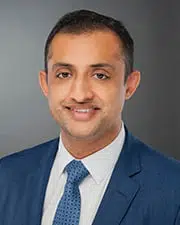
Adnan Khalid, MD, Cardilogist
Education
Dr. Adnan Khalid, MD
Adnan Khalid, MD, specializes in treating coronary artery disease, peripheral artery disease, heart failure, hypertension, arrhythmias, and hyperlipidemia. He has over 10 years of experience in the field of cardiovascular medicine.
Dr. Khalid graduated from his medical school among the top 10 out of 250 medical students in his class. He is fellowship trained in cardiovascular diseases, interventional cardiology, advanced heart failure, and transplant cardiology. He is focused on providing personalized and compassionate care. Dr. Khalid believes in spending time with his patients and listening to their needs and is committed to offering excellent care.
Dr. Khalid is an avid reader. He is eager to learn new things; He likes to work out and spend time with his family. When off from work, he likes to travel and spend time in nature along with family and friends. He is married with three children. Dr. Adnan Khalid is now seeing patients at our Katy and Sugar Land clinics—accepting new patients from Houston and surrounding areas.
Board Certifications
American Board of Internal Medicine
Interventional Cardiology
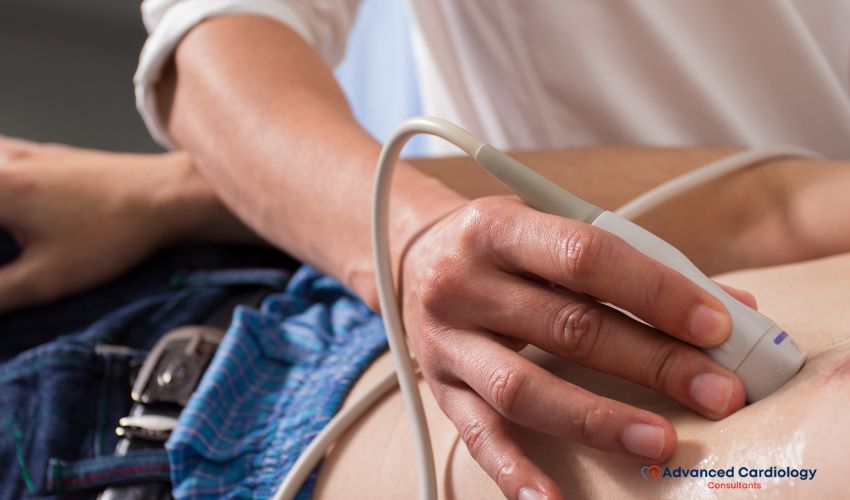
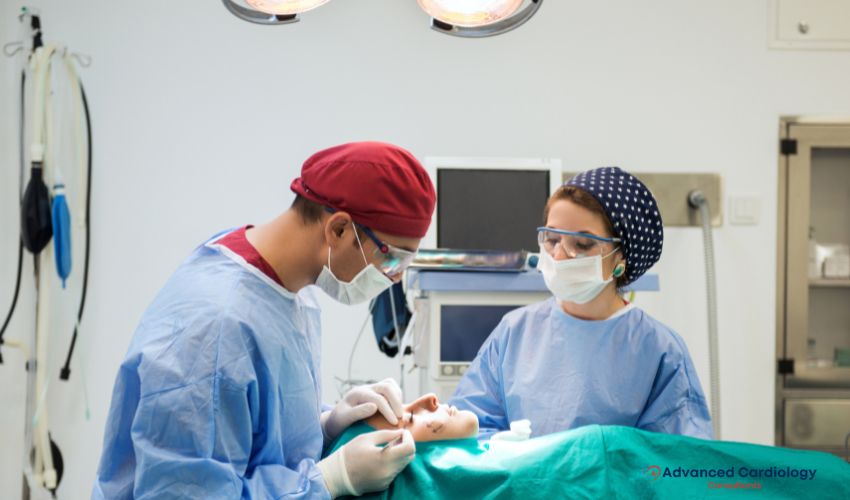
Types of ICD and Pacemaker Devices and How They Work
Understanding your treatment options is key to managing heart rhythm disorders effectively. At Advanced Cardiology, we offer comprehensive evaluations and implantations of various ICD and pacemaker devices designed to support your heart’s function.
Understanding ICDs and Pacemakers: Types, Functions & When They’re Needed
Implantable Cardioverter Defibrillator (ICD):
Why It Matters: ICDs are crucial for patients at risk of sudden cardiac arrest due to dangerous arrhythmias.
How It Works: The device continuously monitors your heart rhythm and delivers electrical shocks when it detects life-threatening irregularities, restoring a normal heartbeat quickly.
Pacemaker:
Why It Matters: Pacemakers help when the heart beats too slowly (bradycardia) or irregularly, preventing fatigue, dizziness, or fainting.
How It Works: The device sends small electrical impulses to prompt your heart to beat at a healthy rate, maintaining consistent rhythm and improving blood flow.
Dual-Chamber and Biventricular Devices:
Why It Matters: Some patients need coordinated pacing in both the upper and lower heart chambers to improve efficiency and reduce heart failure symptoms.
How They Work: Dual-chamber pacemakers synchronize atrial and ventricular beats, while biventricular pacemakers (CRT devices) pace both sides of the heart to enhance pumping action.
Choosing the right device depends on your specific heart condition and symptoms. Dr. Adnan Khalid and our expert team at Advanced Cardiology will guide you through the options and tailor the best approach for your heart health.
Heart rhythm care starts with expert advice—visit us for personalized ICD and pacemaker evaluation and implantation services.
What to Expect During the Implant Procedure
Initial Evaluation and Preparation:
Before the procedure, your cardiologist will conduct a full evaluation, including imaging tests, blood work, and reviewing your heart rhythm data. You may need to temporarily pause certain medications. Our team ensures you’re fully informed and comfortable going into the procedure.
Device Implantation (ICD or Pacemaker):
The procedure is typically performed under local anesthesia with sedation.
-
Pacemaker Implantation: A small incision is made near the collarbone. Leads (wires) are inserted into a vein and guided into the heart, then connected to a pacemaker device placed just under the skin.
-
ICD Implantation: Follows a similar process, but the device includes defibrillation capabilities to correct dangerous rhythms.
Procedure Duration:
Implantation usually takes 1–2 hours. Most patients can go home the same day or after a short overnight stay, depending on the complexity and individual condition.
Post-Procedure Monitoring:
You’ll be observed for a few hours post-surgery. Instructions will be provided on wound care, activity limitations, and when to return for your first device check.
At Advanced Cardiology, our experienced team, led by Dr. Adnan Khalid, ensures a smooth, safe implant process with personalized care every step of the way

When Is It Time to Consider an ICD or Pacemaker?
If you’re experiencing symptoms that may signal abnormal heart rhythms or your previous treatments aren’t controlling your condition, it may be time to consider an ICD or pacemaker. These devices are often recommended in situations such as:
-
You’ve experienced fainting, dizziness, or near-fainting episodes without clear cause
-
You’ve been diagnosed with bradycardia (slow heart rate) or heart block
-
You’ve survived sudden cardiac arrest or are at high risk of life-threatening arrhythmias
-
Medications or lifestyle changes haven’t been effective in managing your heart rhythm
-
Your heart is weakened due to a previous heart attack or advanced heart failure
At Advanced Cardiology in Katy, we offer expert evaluation and implant services designed to restore heart stability and improve quality of life.
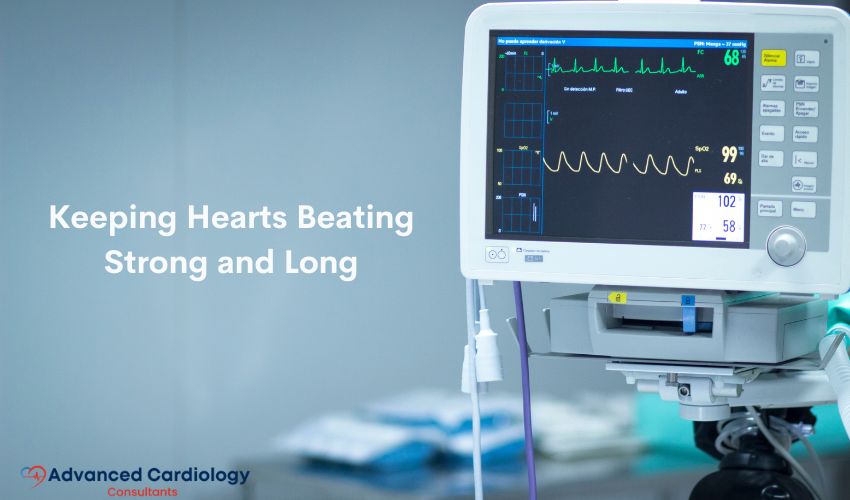
Insurance Coverage for ICD & Pacemaker Procedures
Most major insurance providers—including Medicare—cover ICD and pacemaker implantation when deemed medically necessary. Pre-authorization and documentation from your cardiologist are often required. Our office will guide you through the insurance approval process, ensuring minimal delays and clear information regarding coverage, copays, or out-of-pocket costs.
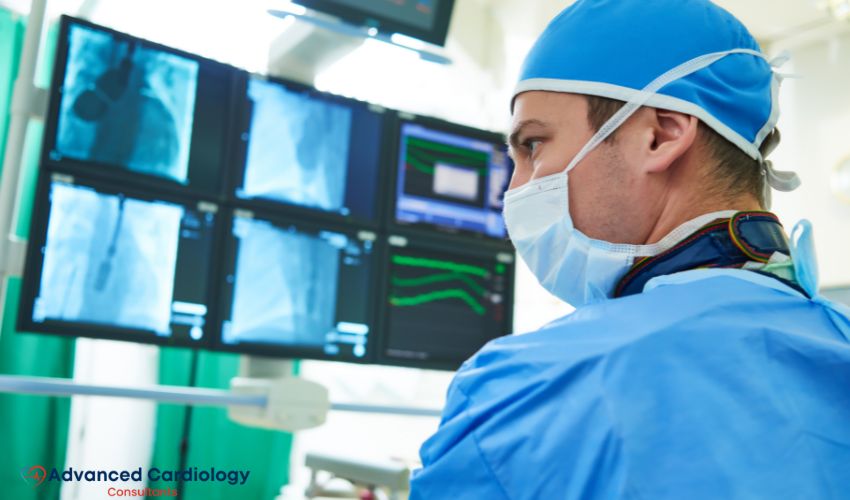
What Happens After the Implant?
The weeks following your ICD or pacemaker procedure are essential for ensuring proper healing and device function. Here’s what to expect:
-
Initial Recovery: Mild soreness or swelling at the implant site is common. Most patients can return to light daily activities within a few days.
-
Device Monitoring: Your cardiologist will program the device and monitor its function through routine follow-ups or remote monitoring tools.
-
Lifestyle Adjustments: While most activities are safe, you may be advised to avoid strong magnetic fields, contact sports, or lifting heavy objects for a short period.
-
Ongoing Care: Regular device checks are scheduled to ensure the battery is working and leads are in place. Your care team may adjust the settings based on your heart’s performance.
At Advanced Cardiology, we offer same-week appointments and long-term support for all patients with pacemakers and ICDs—because peace of mind should last long after the implant.
New Patient Paperwork At Advanced Cardiology
Please print out your paperwork and bring it to your appointment at Advanced Cardiology. If your insurance requires authorization, please be sure to have that information sent to our office or bring it with you to your appointment, along with any medical records you may have. Please also make sure to bring your insurance cards, photo ID, and medication list.
Thank you, and we look forward to meeting you! Contact us today with any questions.
Call to Schedule Your Appointment!
Most insurance plans accepted
(713) 258-6111
Houston Cardiologist
We diagnose and treat heart disease, such as congenital heart defects, coronary artery disease, heart rhythm disorders and heart failure.
About our Cardiologist: Comments from our Patients
# Cooperative & professional staff. Dr. Khalid is highly competent & experienced. Very kind & friendly too.
# He’s A Very Caring & Concerned Doctor. He Asks Important Questions, He Allows Me To Ask Questions & Fully Answers To My Satisfaction. He Diagnosis & Does Whatever It Takes To Fix My Health Issues. He’s A Wonderful Doctor…& Most Of All, I Trust Him & His Staff.
Read More…..
Where Houston Hearts Heal – Advanced Cardiovascular Care
Heart health isn’t just important — it’s life-defining. For individuals facing cardiovascular challenges, timely access to expert care can make all the difference. In Houston, advanced cardiovascular care combines cutting-edge diagnostics, innovative treatment…
